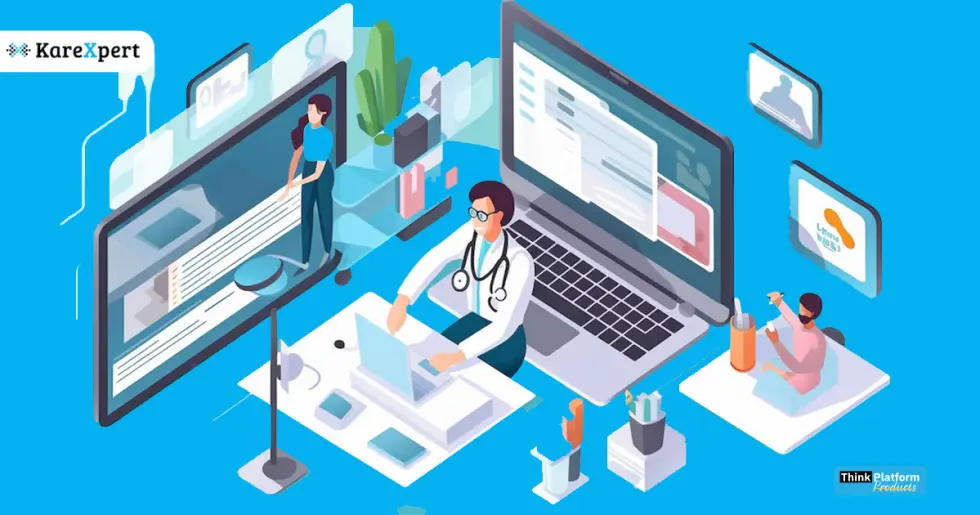The Benefits of Hospital Management Software for Streamlined Patient Care

Hospital management software is an innovative solution designed to improve the overall efficiency of healthcare institutions. This technology allows hospitals to manage patient information, automate processes, and streamline operations, ultimately leading to improved patient care. In this article, we will explore the benefits of HMS for streamlined patient care.
Improved Patient Care
One of the most significant benefits of HMS is the improvement in patient care. With the help of this technology, healthcare providers can easily access patient data, medical histories, test results, and medication lists, allowing them to make informed decisions about patient care. This, in turn, leads to faster diagnosis and treatment, improving patient outcomes.
Enhanced Communication
HMS enables healthcare providers to communicate with each other seamlessly. This is particularly useful in large hospitals where patients are treated by multiple healthcare providers. With HMS, healthcare providers can easily access patient data, test results, and medication lists, allowing for more informed and coordinated care. In addition, the software provides a platform for healthcare providers to communicate with each other, reducing miscommunications and errors.
Improved Efficiency
HMS automates many manual tasks, such as appointment scheduling, billing, and prescription ordering, reducing the administrative burden on healthcare providers. This saves time and improves efficiency, allowing healthcare providers to focus on patient care. In addition, the software provides real-time data, enabling healthcare providers to make informed decisions about patient care quickly.
Cost Savings
HMS can help reduce costs in several ways. By streamlining hospital processes and automating manual tasks, it reduces the need for administrative staff, saving hospitals money in salaries and benefits. In addition, by improving efficiency and reducing the length of patient stays, hospitals can save on operational costs.
Improved Data Security
HMS provides advanced security features, such as data encryption, access control, and regular backups, ensuring that patient data is protected. This is particularly important in today’s digital age, where the risk of data breaches is high. In addition, the software provides a comprehensive audit trail, making it easier to track who has accessed patient data and when.
Scalability
Hospital management software is highly scalable, meaning it can adapt to the changing needs of hospitals. As hospitals grow and expand, the software can accommodate the increased volume of patients, making it an ideal solution for hospitals of all sizes.
Customization
HMS is highly customizable, allowing hospitals to tailor the software to their specific needs. This means that hospitals can choose the features that are most important to them and configure the software accordingly.
Improved Patient Satisfaction
HMS can improve patient satisfaction in several ways. By reducing wait times, improving communication, and providing more personalized care, patients are more likely to have a positive experience. In addition, by providing easy access to medical records, patients feel more informed and empowered, leading to improved satisfaction.
Better Resource Management
HMS can also help hospitals manage their resources better. By providing real-time data and analytics, hospitals can identify areas where resources are being overused or underused. This information can help hospitals allocate resources more effectively, reducing waste and saving costs.
Easy Access to Patient Data
With HMS, healthcare providers can easily access patient data from anywhere, at any time. This is particularly useful in emergency situations where immediate access to patient data can be critical. With HMS, healthcare providers can access patient data quickly and easily, allowing them to make informed decisions about patient care.
Better Compliance
Hospital management software can also help hospitals comply with regulatory requirements. The software can generate reports and track compliance with regulations, such as HIPAA and GDPR, ensuring that hospitals are meeting their legal obligations.
Improved Inventory Management
HMS can help hospitals manage their inventory more effectively. By providing real-time data on inventory levels, the software can help hospitals avoid stockouts or overstocking. This, in turn, can reduce waste and save costs.
More Accurate Billing
HMS can also improve the accuracy of billing. By automating the billing process and reducing manual errors, hospitals can ensure that patients are billed correctly. This can reduce disputes and improve patient satisfaction.
Enhanced Analytics
HMS provides advanced analytics, enabling hospitals to identify trends and patterns in patient data. This information can be used to improve patient care, reduce costs, and identify opportunities for growth.
Improved Decision Making
HMS provides healthcare providers with real-time data, enabling them to make informed decisions about patient care. This, in turn, can lead to better outcomes for patients and improved overall efficiency for hospitals.
Conclusion
In conclusion, HMS is an essential tool for healthcare institutions looking to improve patient care, enhance communication, improve efficiency, save costs, ensure data security, and enhance patient satisfaction. With its advanced features, scalability, and customization options, hospital management software is an ideal solution for hospitals of all sizes. By adopting this technology, hospitals can streamline their operations, improve patient care, and ultimately, provide better healthcare services to their patients.
